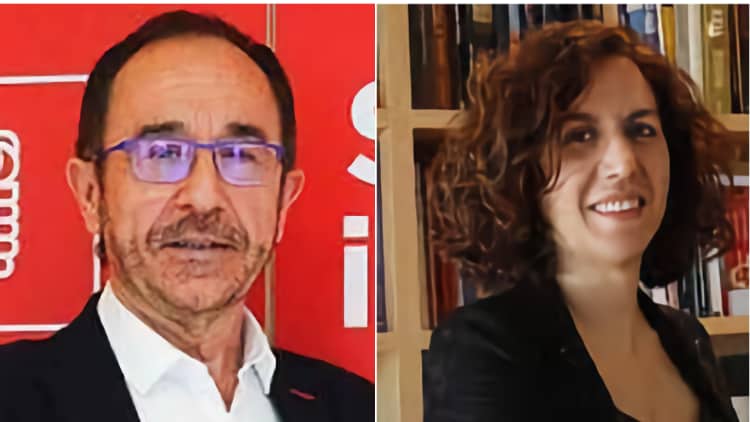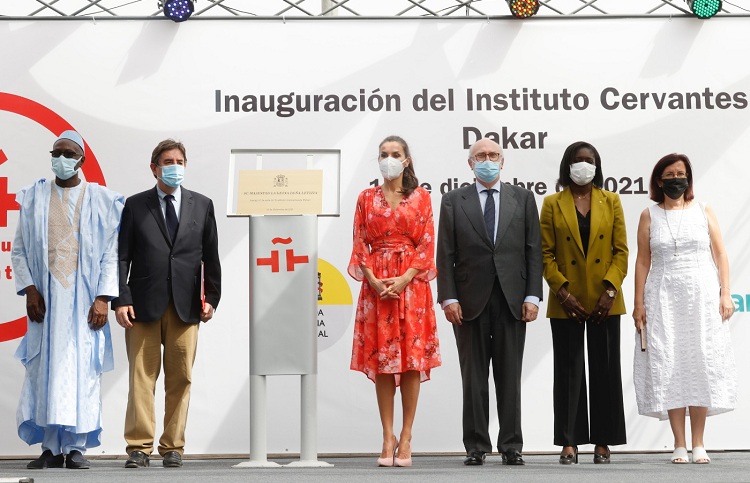Luis Ayllón
The Board of Directors of the Association of Spanish Diplomats (ADE) has issued a communiqué in which it expresses its “concern” over the recent appointments to direct Casa Árabe and Casa Mediterráneo of “people who do not belong to the diplomatic career”, something that is also happening in Casa África.
The complaints of the ADE, which brings together 65 per cent of diplomats, refer to the appointment of Irene Lozano, former Socialist MP and former Secretary of State for Global Spain and former president of the Higher Sports Council, as director general of Casa Árabe, which took place on 19 November; and that of Andrés Perelló, former PSOE MEP, former mayor of Buñol and former ambassador to Unesco, to head Casa Mediterráneo.
The ADE communiqué acknowledges the government’s discretion in making such appointments, but recalls that ‘the consolidated practice of appointing diplomatic officials to head the consortiums that make up the network of Casas has contributed to their outstanding public diplomacy at the service of Spanish society’.
The same can be said,” the text adds, “of their contribution to relations between public institutions and Spanish society with those of the countries that make up the geographical areas served by each House, in areas such as culture, academia, business and information”.
The ADE considers that “there are among the Spanish diplomats candidates with a professional career in the regions concerned and accredited knowledge of them, fluency in several of their languages and professional experience in human and economic resource management that make them not only capable, but also suitable to carry out these positions with rigour, independence and to the full satisfaction of the consortium administrations and Spanish citizens”.
Finally, he expresses his opinion that appointments to management positions in the Casas, which he considers key posts for Spanish public diplomacy, “must continue to be free of political motivations and based on the selection of the most suitable candidates, as is expected, he says, of public institutions”.
Irene Lozano was appointed to the post of Director General of Casa Árabe on 19 November, and is not the first person from outside the diplomatic career to hold the post. Gema Martín Muñoz, an Arabist and lecturer in Arab Sociology, held the post until 2012, after the institution was opened in 2006.
For his part, Andrés Perelló was appointed director of Casa Mediterráneo on 26 November, thus filling the vacancy left a year ago by Javier Hergueta, who was appointed ambassador to Turkey.
Perelló, who was appointed in 2018 by the government of Pedro Sánchez as Spain’s permanent delegate ambassador to Unesco, was replaced a few months ago by the former Minister of Culture and Sport, José Manuel Rodríguez Uribes. He was previously mayor of Buñol, Socialist deputy in the Valencian Parliament, senator and MEP and member of the Euro-Mediterranean Parliamentary Assembly (EMPA).
Perelló’s appointment was rejected by the Diputación de Alicante, led by the PP-Cs bipartite and presided over by the president of the PPCV, Carlos Mazón, who threatened to leave the public consortium that governs Casa Mediterráneo upon learning of the appointment, claiming that this appointment reflects the PSOE’s “partisan use” of the institution.
Perello is also not the first director of Casa Mediterráneo who does not belong to the diplomatic career. The first director general was the sociologist Yolanda Parrado (between 2009 and 2012), who was replaced by Almudena Muñoz (between 2012 and 2015), a lawyer and specialist in tax issues.
As for Casa África, its current director general is José Segura Clavell, a doctor in Chemical Sciences, who, likewise, has not been the only non-diplomat at the head of this institution.
Casa América (Enrique Ojeda), Casa Asia (Javier Parrondo) and Centro Sefarad-Israel, the other three consortiums of the Casas Network, are currently headed by diplomats.







